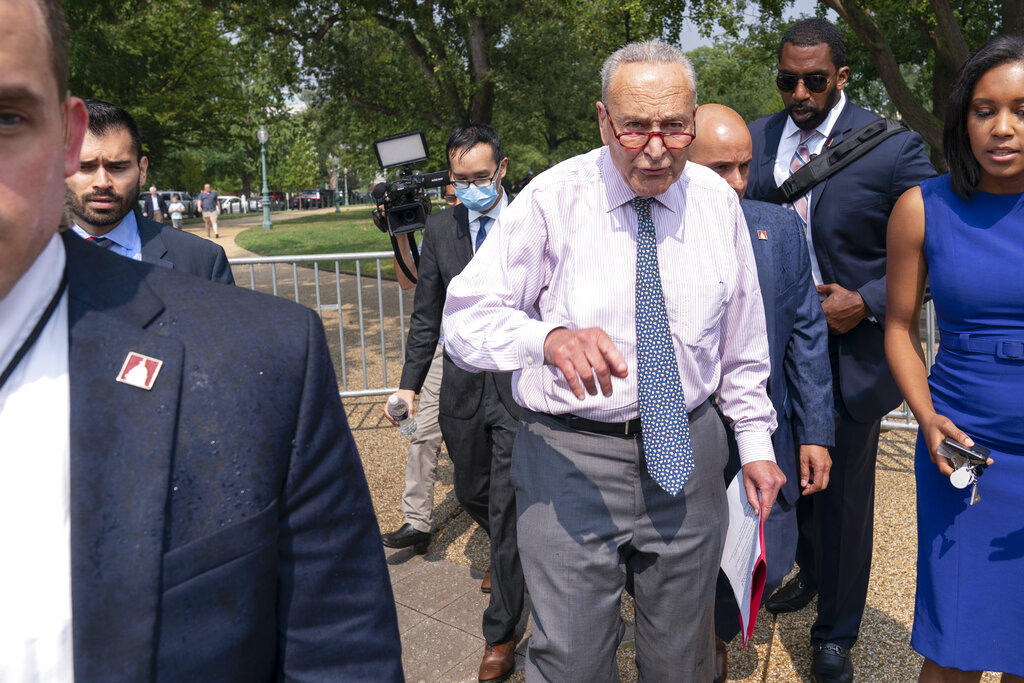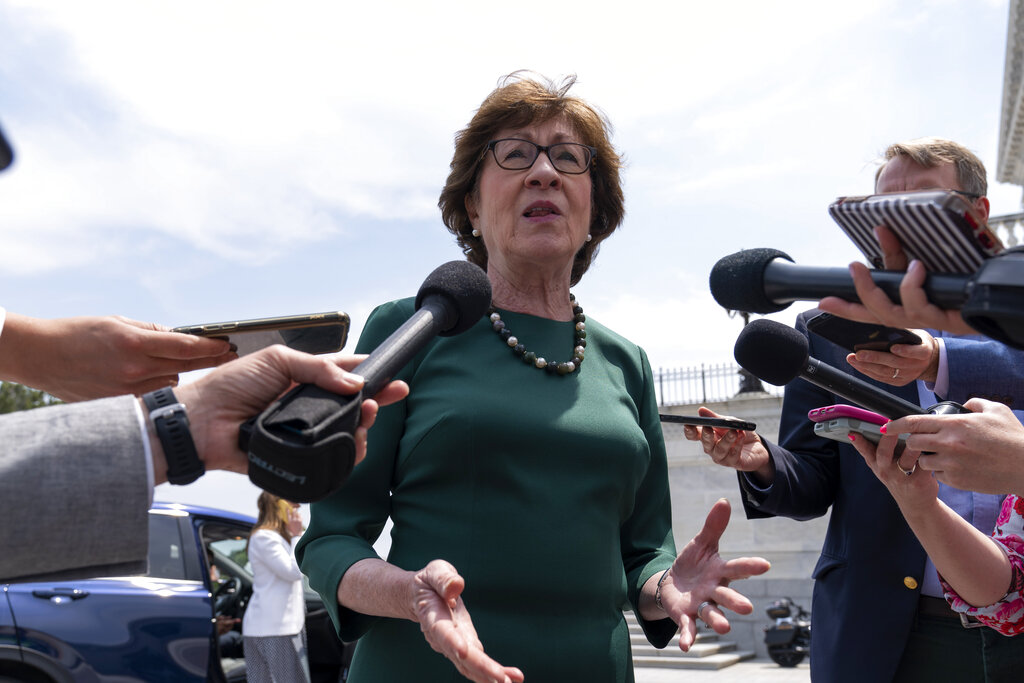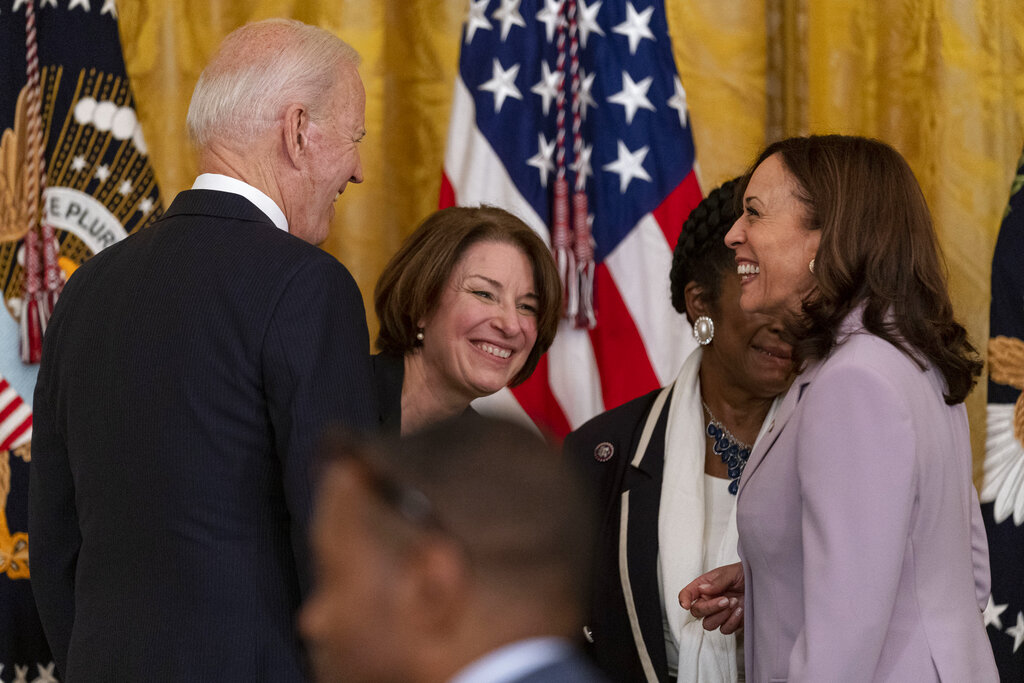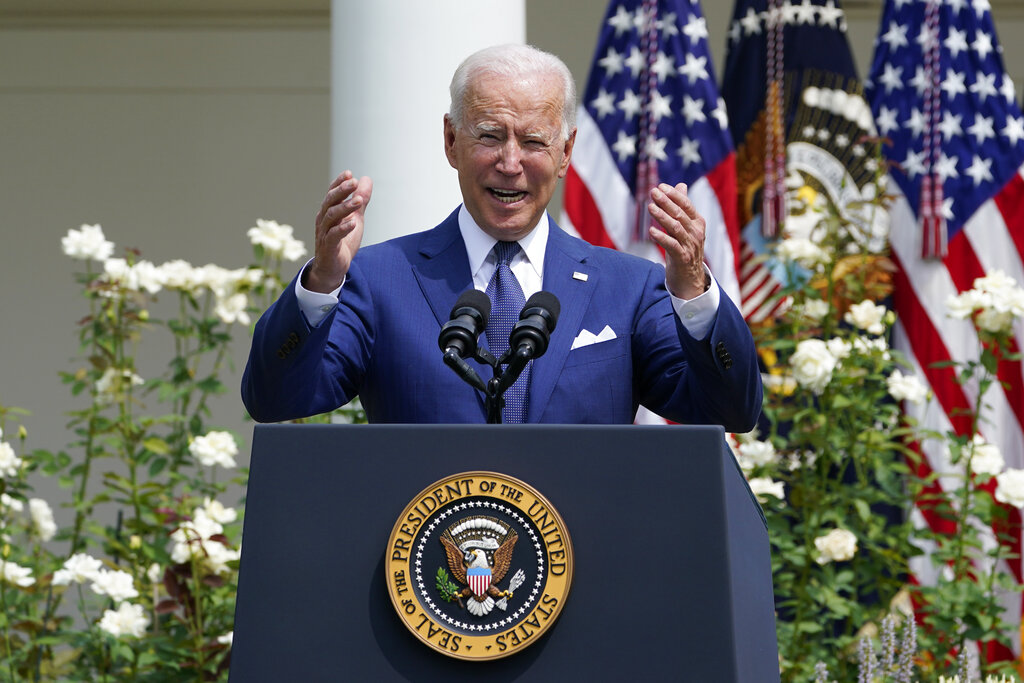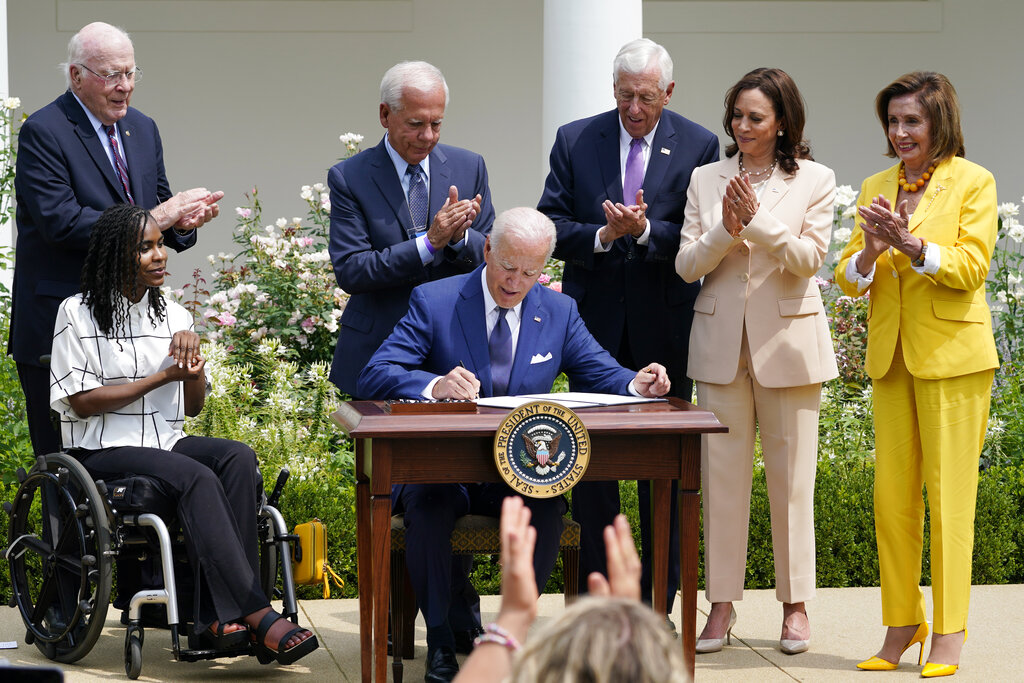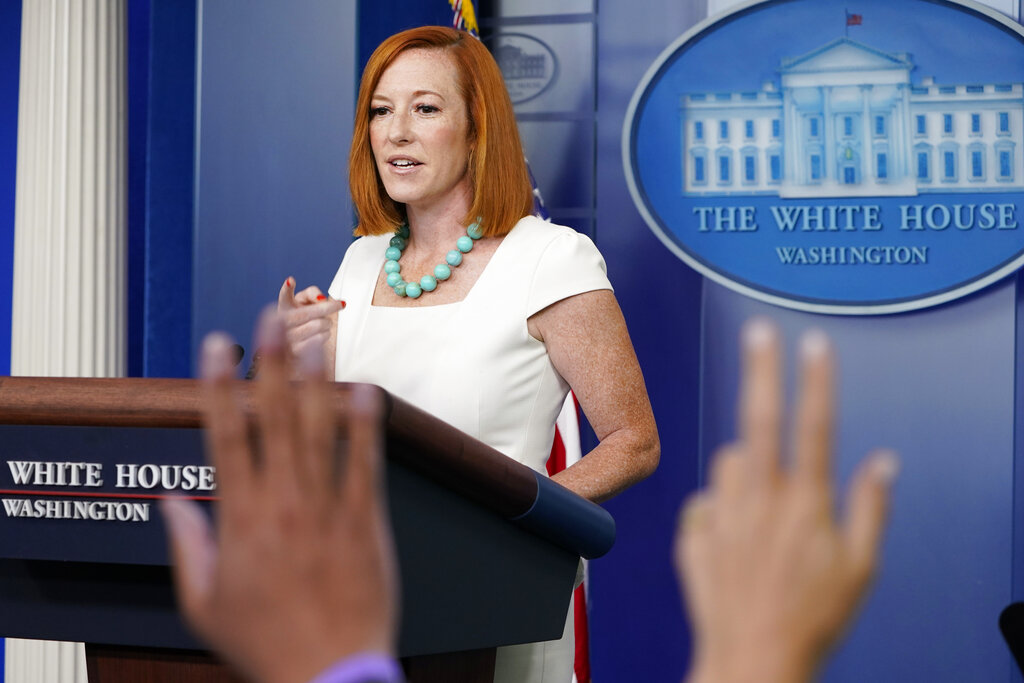WASHINGTON (AP) — Senators and the White House were locked in intense negotiations Tuesday to rescue a bipartisan infrastructure deal, with pressure mounting on all sides to wrap up talks and show progress on President Joe Biden’s top priority.
Despite weeks of closed-door discussions, senators from the bipartisan group exceeded a Monday deadline set for agreement on the nearly $1 trillion package. The biggest stumbling blocks were spending on public transit and water infrastructure and whether the new projects would be held to federal wage requirements for workers. Dipping into COVID-19 relief funds is also a sticking point.
Republican negotiator Sen. Rob Portman of Ohio, who took the lead in key talks with a top White House aide, insisted the bipartisan group was “making progress.” Biden struck a similarly upbeat tone, telling reporters he remained optimistic about reaching a compromise.
But as talks drag on, anxious Democrats, who have slim control of the House and Senate, face a timeline to act on what would be some of the most substantial legislation in years. Senate Majority Leader Chuck Schumer, D-N.Y., told senators Tuesday they should be prepared to work through the weekend to finish the bill.
Sen. Kyrsten Sinema of Arizona, a key Democrat leader in the bargaining, was meeting late Tuesday morning with Biden at the White House to discuss the talks, said two people who acknowledged the session only on condition of anonymity.
The White House wants a bipartisan agreement for this first phase, before Democrats go it alone to tackle broader priorities in a bigger $3.5 trillion budget plan that’s on deck. A recent poll from The Associated Press-NORC found 8 in 10 Americans favor some increased infrastructure spending, and the current package could be a political win for all sides as lawmakers try to show voters that Washington can work. Securing the bipartisan bill is also important to retain the support of some centrist Democrats before engaging in the broader undertaking.
The House will also have a chance to weigh in on the legislation if it clears the Senate.
At a private meeting of House Democrats on Tuesday, the chairman of the House Transportation and Infrastructure Committee called the infrastructure measure that senators of both parties are struggling to complete “crap,” according to two Democrats who attended the session. Rep. Peter DeFazio, D-Ore., said the Senate effort was being led by “three Republicans” — Portman, Susan Collins, R-Maine, and Sinema, D-Ariz., a centrist distrusted by some Democrats.
The bipartisan package includes about $600 billion in new spending on public works projects, with broad support from both sides for many of the proposed ideas.
Yet there was little to show Monday after a grinding weekend of talks, putting the deal at risk of stalling out.
The Democrats and the White House had sent what they called a “global” offer to Republicans on remaining issues late Sunday, according to a Democratic aide close to the talks and granted anonymity to discuss them.
But Republicans rebuffed the ideas, saying the new proposal attempted to reopen issues that had already been resolved, according to a GOP aide also granted anonymity to discuss the talks.
Collins called for Biden to become more involved. “I think it’s imperative that the president indicates strongly that he wants a bipartisan package,” she said.
While much of the disagreement has been over the size of spending on each category, labor issues have also emerged as a flashpoint.
Democrats are insisting on a prevailing-wage requirement, not just for existing public works programs but also for building new roads, bridges, broadband and other infrastructure, according to another Republican granted anonymity to discuss the private talks.
Transit funding has also been a stubborn source of disagreement.
Pennsylvania Sen. Pat Toomey, the top Republican on the Senate Banking, Housing and Urban Affairs Committee, which oversees public transit, raised questions about the size of the transit funding increase. He cited, in part, previous COVID-19 federal relief money that had already been allocated to public transit.
Democrats and public transit advocates don’t want spending to go any lower than what’s in the past been a federal formula of about 80% for highways and 20% for transit. They see expanded public transit systems as key to easing traffic congestion and combating climate change.
The senators also appeared to still be debating money for public water works and removal of lead pipes after Sen. Mitt Romney, R-Utah, raised questions about the amount.
Also unresolved is how to pay for the bipartisan package after Democrats rejected a plan to bring in funds by hiking the gas tax and Republicans nixed a plan to send the IRS after tax scofflaws.
Funding could come from repurposing COVID relief aid, reversing a Trump-era pharmaceutical rebate and other streams. It’s possible the final deal could run into political trouble if it doesn’t pass muster as fully paid for when the Congressional Budget Office assesses the details.
The final package would need the support of 60 senators in the evenly split 50-50 Senate to advance past a filibuster — meaning at least 10 Republicans along with every Democratic member. A test vote last week failed along party lines as Republicans sought more time to negotiate.
Meanwhile, Democrats are readying the broader $3.5 trillion package, which would go beyond public works to include child care centers, family tax breaks and other priorities. It is being considered under budget rules that allow passage with 51 senators in the split Senate, with Vice President Kamala Harris able to break a tie. That package would be paid for by increasing the corporate tax rate and the tax rate on Americans earning more than $400,000 a year.
Latest News
- Thune lays out plan for separate border and tax reconciliation bills
- AUTO TEST: NNN Synopsis Text
- AUTO TEST: Synopsis post
- AUTO TEST: NNN Synopsis
- AUTO TEST: Disable Ads post


